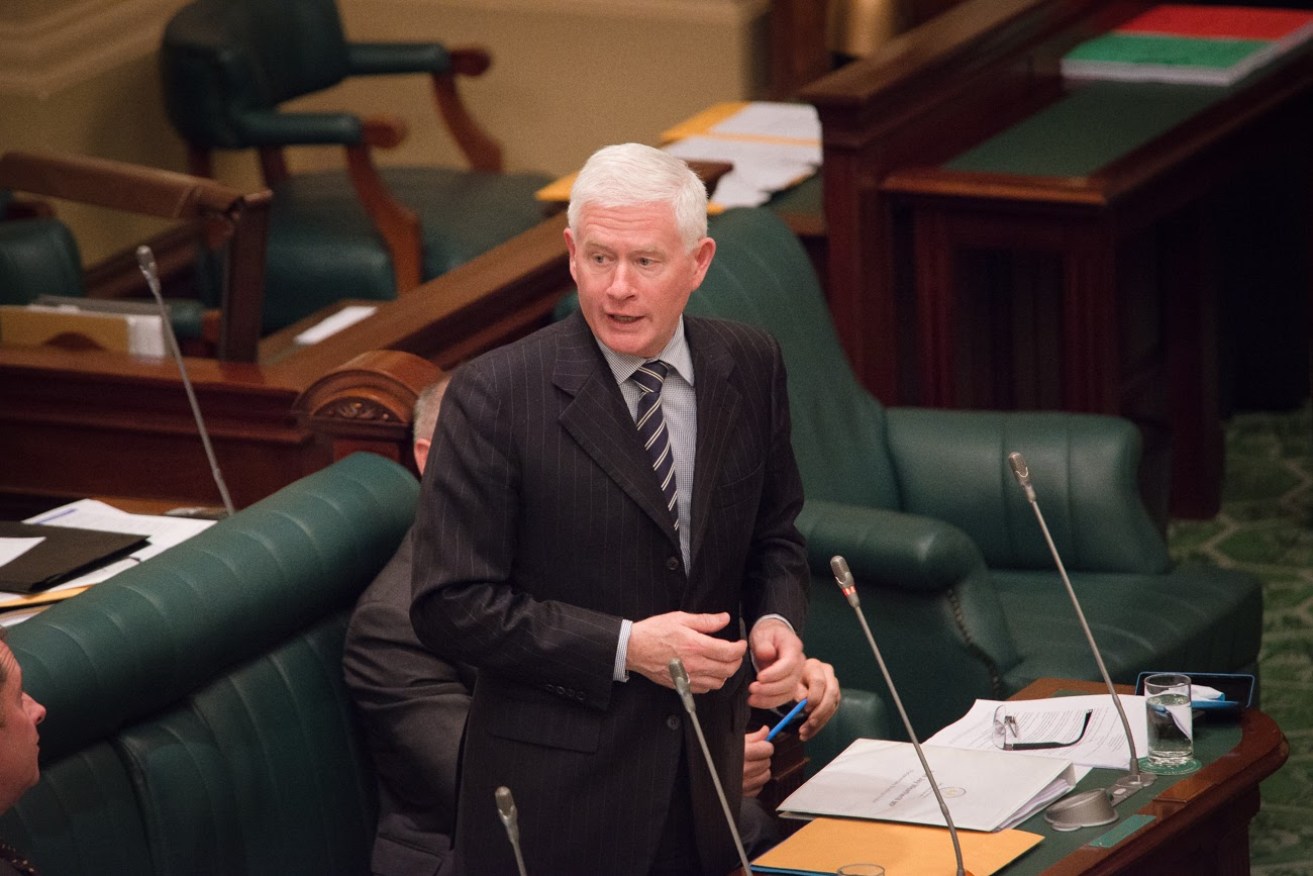No referendum, but Rau still targeting Upper House “preference-gaming”
South Australians will not face a referendum at the next state election, with Attorney-General John Rau abandoning his bid for electoral reform through constitutional change – but he insists he’s still determined to revise the way the Upper House is elected.

John Rau plans new registration requirements for residential property managers. Photo: Nat Rogers / InDaily
State Parliament appears likely to follow the federal Senate with a shake-up of the voting rules, intended to break what Rau calls “the preference-whispering business model”.
But bills introduced to parliament late last year that sought to prohibit the Upper House blocking appropriation bills and give the Government the option to call a snap election in the event of legislative deadlock were defeated in the last week of sitting, with Rau now conceding there is no hope of resuscitating them.
“They’re dead,” he told InDaily.
“They got killed by the Upper House.”
The proposed reforms were overwhelmingly rejected, with the Attorney conceding: “I’m reasonably numerate, so there was no point in me putting [them] up again.”
The electoral reform measures were flagged in last year’s Governor’s speech to the opening of parliament – a keynote address intended to outline the policy agenda leading up to the next election – when Hieu Van Le revealed the Government “will introduce deadlock reform, which will involve new options to resolve disputes between both Houses”.
Rau believes while that reform will not eventuate, “we’ve honoured our commitment to take it forward”.
“There’s been a vote on it – we’ve lost the vote,” he said.
“I’m not jumping up and down about it.”
But he insists one “piece of the puzzle” in his electoral reform proposals remains alive: his bid to change the Upper House voting system.
He favours a direct count, rather than a preference-based system, and wants to model his changes on the “Sainte-Laguë method” used in Western Europe, whereby seats are allocated to those with the most primary votes.
However, any such change will need the assent of those affected by it, and it appears more likely consensus will favour an optional preferential system broadly in line with the recent Commonwealth changes.
Those, too, were designed to give voters more control over their preferences, allowing them to number one to six above the line on the ballot paper in order of their preferences, or individual candidates below the line.
Greens MLC Mark Parnell told InDaily “there’s an appetite for change” in the Legislative Council, but members were waiting to see the “wash-up of the [recent] senate election and analyse how that system worked”.
He said the crossbench senate result was perhaps skewed by the fact it was a double dissolution election with consequently lower quotas, but “at the end of the day the fundamental principal is that ultimately, if the will of the Australian or the SA voters is that these people get elected, well so be it”.
“The expectation is you look at this purely along the lines of self-interest, but the Greens’ position, I think, is a bit more principled than that,” he said.
“The voting system we’ve advocated in the past would have had some of our people not elected, but it’s a fairer, more democratic system.”
Rau says he’s open to discussing options with all members of both houses on how to stop micro-parties “gaming the system”, but insists the outcome must “basically eliminate the machinery of party preference whispering”.
“I’m absolutely committed to doing something about the voting system in the Upper House,” he said.
“I’m of the view that our [proposed] system is by far the simplest and would completely get rid of the preference whispering business model… but what’s going to happen now is that we will as a parliament get into more active discussions about where we go from here with electoral reform to the Upper House.
“I don’t think it’s an option that we go to the 2018 election without that change, because we’d be asking for trouble… the question is what we can land on.”




